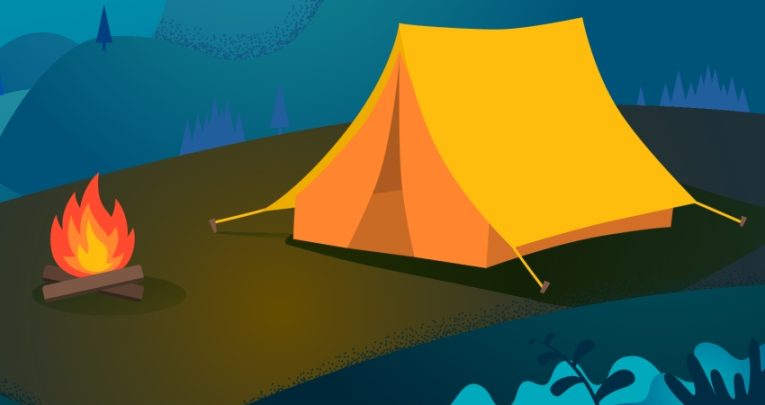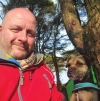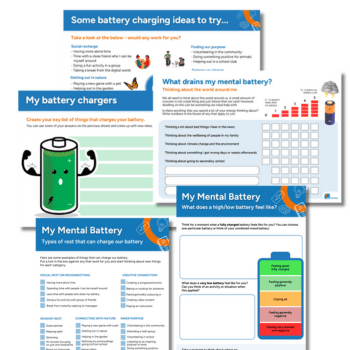Residential trips for schools – The school that takes its Y9s wild camping

What good can come from taking a group of Y9s wild camping in an environment they’re often completely unfamiliar with? Quite lot, as it happens, explains Steve Priday…

- by Steve Priday

Challenge 24 is an in-house initiative we’ve developed at Bedminster Down School. It’s an opportunity we offer our pupils to camp overnight in Dartmoor, which for many of them, will be an environment that’s considerably outside of their comfort zone.
The key aim is to simply give them that experience of being outdoors. There’s no physical training, or even any specific activities involved. It’s more a case of us saying, ‘We’re going to take you to this environment, a place you might not have considered visiting before, and give you the chance to experience what it’s like’.
Some of our students return from a Challenge 24 trip never wanting to go there again, having decided it’s not for them. But we’ve seen time and time again just how life-changing it can be for students who have never been to Dartmoor, or anywhere like it before.
We’ve seen students really thrive in the environment, and decide they want to spend more time in it – something they might never have discovered, had we not provided them with the experience.
A challenging year
Our very first Challenge 24 trip went out in September 2017. We now organise trips across the Thursday and Friday of each week during half terms 1, 4, 5 and 6 – they’re optional, entirely free of charge for students and their families, and for Y9s only.
While it’s true that Y9 can be a challenging year, thus far I’ve not experienced any untoward behaviours on the trips, beyond the kids being bit noisy and boisterous at times. I’ve been in the school for 13 years now, so most of the Y9s know me well and what my expectations are.
Dartmoor is one of few places in the UK where you can legally wild camp, and we’ve made sure that the campsite location we regularly use ticks a number of boxes. It’s a spot close to areas of natural interest that feels remote, but is only around a mile away from where we park the minibus in case there’s an issue where we need to call in help or support – not that that’s happened so far.
Quality time
Because it’s a non-compulsory activity (albeit one we strongly encourage pupils and parents to take part in), the group sizes can vary, though they typically comprise around 10 to 12 pupils each time. Initially, I took groups drawn from different Y9 tutor groups, letting pupils tell me who they wanted to share a tent with – though that soon started presenting logistical challenges when friendship groups would suddenly break up.
What I do now is take a portion of students from the same tutor group at a time. The teacher will come out on the trip with us too, giving them the chance to spend some quality time getting to properly know their tutor group.
A couple of years back we made the further decision to take out single-sex groups only. What I’ve observed is that without any girls around, the boys on Challenge 24 trips simply become boys again – wanting to run off, play Manhunt and the like.
Boys and girls alike seem much more at ease on the trips now than when they were in mixed groups. They’re already staying overnight in what will be a difficult, unfamiliar environment for most them; removing the self-consciousness that students their age can often feel when around peers of the opposite sex helps them to feel much more relaxed, and more willing to engage with their surroundings.
Set itinerary
Each trip follows a fairly set itinerary. The process begins with a comprehensive letter to parents and carers, outlining what the trip will entail, the kind of clothes participants should wear and what clothes to avoid.
On the day itself, the students attend morning registration wearing the clothes they’ll going out in and will have a small bag containing a spare outfit and any specific items of food they want to take.
Once the bell goes for period 1, I’ll meet the group in a classroom adjoining my equipment store and spend 90 minutes issuing students with all the camping equipment they’ll need, talking them through the various items.
We never expect pupils to own any of the items – hiking boots, rucksacks sleeping bags, etc. – though they’re welcome to bring their own if they do.
I’ve managed to secure the school’s equipment supply via a range of different sources over the years – some from shop purchases, some through charities such as Gift Your Gear, and some picked up from contacts I have in the Armed Forces.
We’ll then pack our bags and I’ll distribute the students’ food supplies – enough items to sustain them over the trip, which at most involve simple preparation with boiling water. After a packed lunch for that day from the school canteen, their evening meal will consist of a Pot Noodle and Jaffa Cakes.
Breakfast the following morning will comprise a cereal bar and a porridge pot. That said, the kids have the option to augment that selection with any other foods they wish to bring along.
Having packed, we make our way to the minibus and travel out to Dartmoor, which typically takes around two and a quarter hours. My dog, a little border terrier called Eddie, always comes out with us and is very much a ‘part of the offer’, being incredibly good with children.
After parking up, we’ll have our packed lunches, put on our bags and strike out towards the campsite, which usually takes as long as it takes. A couple of trips ago we had a child with us who had mild cerebral palsy – two other boys carried his bags, while the rest of us walked at ‘ambling pace’, taking our time so that the journey was accessible for him.
Realising the possibilities
At the campsite I’ll demonstrate how to put up a tent, encouraging everyone to watch and listen very closely – because if they don’t, they’re not going to have a very comfortable night’s sleep.
That usually gets their attention.
When the tents are all up, the students are given time to independently explore their surroundings – within certain boundaries, but with some free rein to observe some of the local wildlife.
After this, I’ll demonstrate how they should use their cookers to boil water and prepare their meals. Once dinner has been eaten and everything’s packed away, they get to decide how they want to spend the remaining time until it gets dark – often simply sitting and chatting, sometimes playing games of Manhunt or similar. Depending on the time of year, the cut-off point will usually be 9pm to 10pm, after which they need to be in their tents.
The following morning, we’re normally up somewhere between 6 and 6.30 There will be a further cooking demonstration before breakfast, after which we’ll take down the tents, pack up, return to the minibus and be back at school by early Friday afternoon.
Our students aren’t able to participate in Challenge 24 more than once, though many ask to. I’ll usually encourage those individuals to consider training for the Ten Tors challenge, or enrolling in the Duke of Edinburgh’s Award.
Because that’s what this experience does – it really opens students’ eyes to possibilities that weren’t there before, which we as a school do our best to encourage wherever we can.
Steve Priday is outdoor education lead at Bedminster Down School, having previously been a sergeant in the Royal Military Police and instructor for the education charity Skillforce; for more information, visit bedminsterdown.org.uk or follow @BdownSchool










